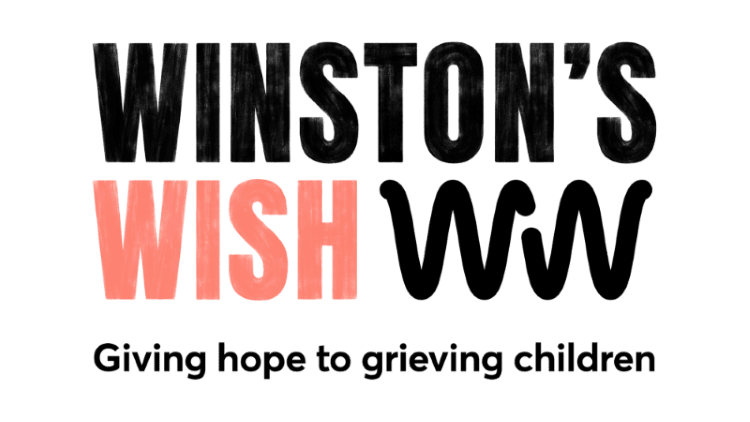Books about bereavement on World Book Day
World Book Day is a good time to think about the part that books can play in helping children and young people who are grieving.
Sometimes, when we struggle to find the right words, a shared book can bridge the gap and open a door to talking about and expressing feelings, thoughts and memories.
The right book at the right time can inform, expand understanding and provide comfort. It can also help a child to give a voice to the thoughts and questions s/he might have tangled up inside. The very act of reading a book together usually involves a snuggle – which is all part of the process of weathering the storm of grief. Rabbi Baal Shem Tov said ‘when the bond between heaven and earth is broken, even prayer is not enough; only a story can mend it.’
In recent years, there have been many wonderful books written to support children who have been bereaved. Winston’s Wish has a range of helpful publications here specially written for adults who are supporting those who grieve. The following are just a tiny handful of the available books that we find ourselves most often recommending to families: our longer booklist can be found here. If you have a specific situation you would like to discuss, do call our Freephone National Helpline (080 88 020 021) to talk it through.
For children under 5
When children are very young, they have not yet developed their understanding of death and dying. So, first off, two books that take a straightforward approach to talking to such young children. I Miss You: a first look at death by Pat Thomas is a very simple, very natural description of death and dying and the feelings and questions that children may have.
Another straightforward account of death, dying, feelings and rituals written for 4-6 year olds is When Dinosaurs Die: a guide to understanding death by Laurie Krasny Brown. This book helps parents and carers to find answers to some of the questions children might have when someone dies.
By and large, (with one major exception we’ll come to later) children can accept and gain a lot from a story about a grandfather dying when they may have had a mother die, or a story about squirrels when it has been a cousin who died. They will appreciate a parent or carer helping to make the links (‘this is a bit like what happened to Daddy, isn’t it?’…) If, however, the child has become very anxious about the surviving parent dying, it may be best to use stories about a mother’s death if a mother has died and so on.
Missing Mummy by Rebecca Cobb is a beautifully written and illustrated book about a very small child trying to find her mother and puzzling over where she has gone before her father gently re-explains that Mummy has died.
Is Daddy coming back in a minute? by Elke Barber is a brilliant book for pre-school children about the sudden death of a father and the questions his death raises for his child (‘Did he say ‘please can I come back?’ ‘)
A companion book called What happened to Daddy’s body? also by Elke Barber returns to Alex and the questions he has developed some time later about what happened to Daddy’s body. The author gently explains burial and cremation in a clear, simple, non-scary way.
For slightly older children
A book about the ways a group of woodland creatures react to the death of one of their friends is one of the best all-purpose story books for children. Always and Forever by Debi Gliori and Alan Durant shows the impact that the death of one of the group has on different creatures and how, gradually, they find their memories bring them some comfort in their grief.
The Copper Tree by Hilary Robinson is a lovely, thoughtful story about the illness and death of a school teacher.
For teenagers
Teenagers have had far fewer books written for them about the death of someone close.
Straight talk about death for teenagers: how to cope with losing someone you love by Earl A Grollman does just what it says on the cover. It offers ideas and a few strategies.
Young adult fiction sometimes deals with death or anticipated loss. Example would include John Green’s novel about two terminally ill teenagers: The Fault in our Stars and Before I die by Jenny Downham about a 16 year old facing her own imminent death.
A special mention should be made for A Monster Calls by Patrick Ness (recently made into a film) which tells the powerful and painful story of a 13 year old boy as his mother grows more sick and eventually dies and the boy’s connection to a wild tree that comes to embody his fears and rage.
The exception
We mentioned earlier that, while often books about who died can be interchanged (cats for grannies etc), there is one exception. If a father has died by suicide, it raises too many questions and anxieties to read a story book about a mother dying this way – and vice versa. But there are two good books written for 4-8 year olds about the suicide of a parent. Firstly, Luna’s Red Hat by Emmi Smit deals gently, honestly and clearly about a mother’s death by suicide and, secondly, The Little Flower Bulb by Eleanor Gormally does the same about a father’s death.
Some classics
Probably some children who dress up for World Book Day do so as characters from some classic children’s books… and as characters who have been bereaved as children. Maybe the most obvious example is Harry Potter, who has had both his parents die. But remember also Heidi and the Little Princess and Mary and Colin from The Secret Garden and Simba, the Lion King and Bambi and, to be honest, most of Dickens’ characters.
And finally…
Our last two suggestions – do follow this link to see some more!
Michael Rosen’s Sad Book (illustrated by Quentin Blake) should have won every prize going. If you just look at the first page where there is a drawing of Michael Rosen smiling in an exaggerated fashion and read the caption:
‘This is me being sad. Maybe you think I’m happy in this picture. Really I’m sad but pretending to be happy. I’m doing that because I think people won’t like me if I look sad.’
The reader immediately knows they are in safe hands. It is suitable for adults as well as children and the last page is just heart-breaking. But also beautiful and consoling.
Finally, a book we often encourage callers to the Winston’s Wish helpline to seek out: No Matter What by Debi Gliori. There is a twist to this suggestion… you need to find an earlier published version of this book because, for some reason that really frustrates us, the publishers have changed the ending. So try libraries or haunt bookshops and check the back pages. One reason we like it is that it is not a book about death; it’s a book about living and loving that mentions death so naturally.
It is a gentle story of an ordinary going-to-bed routine and a parent’s unconditional love as the little one is a little grumpy. Every challenge is met by the parent repeating: ‘I’ll always love you, no matter what’. But right at the end, the story subtly changes as the little one asks:
‘But what happens after we’re dead and gone? Does love go on?’
And the parent lifts up the little one to see the stars out of the window and answers:
‘Look at the stars, how they shine and glow
Some of those stars died a long time ago.
Still they shine in the evening skies,
Love, like starlight, never dies.’


